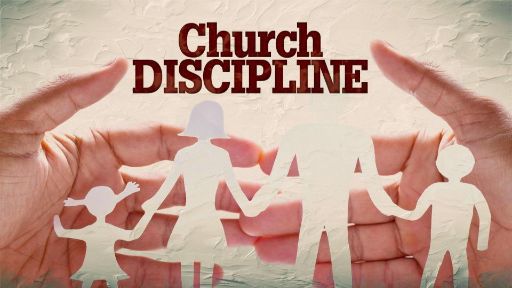-
How To Handle A Sinful Person In The Church Series
Contributed by Jerry Cosper on Nov 28, 2017 (message contributor)
Summary: We have just finished examining Paul’s 11 answers to some questions he was asked in a previous letter. Now Paul starts to address some more detailed problems. In chapter 5 of 1 Corinthians, Paul addresses the shameful sin of sexual immorality.
We have just finished examining Paul’s 11 answers to some questions he was asked in a previous letter. Now Paul starts to address some more detailed problems. In chapter 5 of 1 Corinthians, Paul addresses the shameful sin of sexual immorality.
Many churches become involved in shameful sin. When this happens, what should the church do? Ignore it? Pray about it and hope God will take care of it? OR take action and do everything possible to restore that person in Christ? This passage and the next passage deal with the sensitive subject of church discipline.
READ v. 1. Fornication is the shameful sin that Paul is addressing—a case of sexual immorality, public incest in the church. You might have noticed that there is no interlude between chapters 4 & 5. Paul jumps right in and begins to handle this shameful problem. The problem is that the son is living with his step-mother, his father’s wife, and it is public knowledge. Everyone knows about it.
Paul states, “A man HAS his father’s wife.” This seems to indicate a permanent relationship. The son had either married her or was living with her. The son was a member of the church. He was a faithful enough member to be known by the congregation. He might have even been one of the leaders in the church. The testimony of the church was being ruined.
READ v. 2. The church seemed to have a shameful complacency about it. Paul says, “You are proud.” We have already seen that the Corinthians were a proud people. That’s a big part of the problem that Paul addressed in the first 4 chapters. But they were allowing a shameful sin to exist in their midst. They should have been mourning over it. They should have been driven to prayer. They shouldn’t have been boasting. They should have been mourning over the sin in their midst. They should have prayed for God to restore the fallen brother or to remove him and the sin from their fellowship.
How can this church boast? How can they be prideful? We will see when we get to verse 6 that this person must have been a prominent leader in the community. They weren’t boasting in his sin. They were boasting because a community leader was a member of their church.
It would kind of be like if we had a professional doctor, let’s say, as a member of our church. A doctor that is always being interviewed on the news. Someone who contributes greatly to the finances of the church. The church is proud to have someone like that in their congregation. But then he commits this immoral sin. Now what?
A church cannot be complacent in dealing with evil and sin. This is the entire thrust of this passage. A church can’t erase completely sin from its midst. That’s because no person is perfect. But clear and unquestionable sin and evil must be dealt with and corrected no matter who they are. If a church remains complacent about something like this, God cannot bless that church and it will eventually lead to the church’s destruction.
READ v. 3-5. Here is what Paul says to do. Remember, Paul was away on a mission trip and couldn’t be in Corinth. But his spirit of love toward the church overflowed as he was with them “in spirit.” So Paul had already judged this matter. He had already made a decision on what needed to be done. And it was too important to leave hanging until he returned. 3 things were to be done:
1. The offender was to be disciplined “in the name of our Lord Jesus Christ.” Notice the word “our”. Jesus is OUR Lord, my Lord, the church’s Lord, and the Lord of the offending person.
It is YOUR Lord that is being hurt. His name is being damaged.
It is for YOUR Lord that this discipline must be carried out.
It is OUR Lord who can use the discipline to awaken the sinful person’s conscience to repent and to seek reconciliation with God.
2. The offending person was to be disciplined by the church in a special gathering. Paul says he is going to be with them in spirit as they handle this most difficult matter. When we get into the next passage, next time, (vv. 6-13) we will see that Paul tells the church that they must clean the church itself up before discipline is ever carried out.
3. The offender was to be disciplined through the power of our Lord Jesus Christ. He was to be delivered to Satan. Sounds harsh. But this person is to be delivered to Satan to destroy the sinful nature and so that his spirit might be saved in the day of our Lord Jesus Christ.

 Sermon Central
Sermon Central



